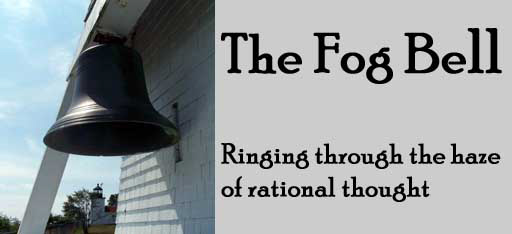Once upon a time, companies serving the public seemed to care about their customers. At least, that’s the impression they tried to make. Anyone paying attention in the early ’80s, for example, might remember an ad campaign, by New York State’s Savings Banks Association, that featured a customer proclaiming, “I’m not a business…I’m a people.” A heartbeat later came two ascending notes of angel chorus, suggesting a blessing from above—you know, up past the clouds.
In today’s advertising, people don’t seem to matter for much. Maybe we shouldn’t have insisted on a bagel setting in those free toasters the banks were giving out? Either way, businesses don’t woo us for ourselves, just for the data on our computers. Yet the ads use the same heavenly metaphor, summed up in two words: “The Cloud.” The singing angels seem to have been sacked, but the term nevertheless suggests the same assurance the prayerful among us expect from above. A few examples from ads:
• “Cloud disaster recovery at your fingertips”
• “Own Less. Do More. That’s Cloud Power.”
• “Powering Innovation with the Cloud”
Don’t feel bad if you don’t know what any of these slogans mean. I haven’t the faintest idea myself, and I suspect you’re not supposed to know. You’re supposed to see that word “Cloud” and imagine something on a par with angel chorus—though it’s only your wallet that sprouts wings. But this meaningless advertising isn’t just targeting businesses. Got photos and videos on your home computer? Apple’s iCloud suggests you keep them safe in “the cloud.” Ditto for all that digital music you have in iTunes.
No matter whose money corporate America is after, the underlying promise is the same: The Cloud is a massive network of computers with lots of storage for secure data protection and processing power for smart, real-time business decisions.
But wait just one minute. We’ve seen massive networks of computers before, and with the same grandiose security. In the movie War Games, a high-school kid unknowingly hacks into the military’s defense network. In Jurassic Park, a character who looks an awful lot like Newman from Seinfeld is able to shut down the network’s security functions so he can make off with a canful of dino-DNA. And in the Terminator series, a worldwide network called Skynet becomes self-aware and begins wiping humans off the planet. Do they mean computers like these?
What’s more, I myself have seen too many gangster movies. Once I’ve uploaded all of my photos and songs to the cloud—and cleared them from my computer—I fully expect the price for that cloud-based storage to rise…and rise. “Gee, that’s an awfully nice set a’ videos ya shot of little Emma and Ethan in the soif on dat Hilton Head vacation…you wouldn’t want anythin’ ta happen to dose precious memories, now, wouldja?”
Companies, of course, would defend themselves and say that it’s all about data security, smart analysis, innovative decision-making and more. But I know better. The closer the country’s six million companies get to starting up their own clouds, the shadier things are bound to look.
As for me, I’ll take my chances. I don’t need any company’s cloud to protect my data, thank you. I’m careful enough to make sure that file trouble never hap—
Tuesday, October 27, 2015
Subscribe to:
Posts
(
Atom
)



